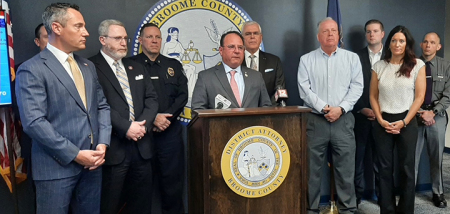Democrats Should Build On Bush’s Drug Plan, Not Wreck It
Published:
October 18th, 2006
By:
Morton Kondracke

Despite abundant evidence of its success, Democrats are still on the warpath against President Bush’s 2004 Medicare prescription-drug plan – and they threaten to undermine future success if they take control of Congress.
At an Oct. 4 campaign event in Sunrise, Fla., House Minority Leader Nancy Pelosi, D-Calif., declared, “This is a bill borne of corruption at the expense of America’s seniors, and we can do something about it.”
She promised that one of the top priorities of a Democratic Congress would be to authorize the federal government to directly negotiate with drug companies to lower their prices instead of relying on private insurance companies.
The savings, she said, would be used to close the “doughnut hole,” the gap between the first $2,250 in a beneficiary’s annual drug expenditures, of which the government pays 75 percent of the cost, and $5,100, above which it pays 100 percent.
To save money, Congress required seniors to cover the $2,850 hole themselves, either by buying insurance or paying out of their own pockets – which Democrats denounced at the time even as they assailed the administration for underestimating the total cost of program.
According to Mark McClellan, who is leaving this week as head of the Centers for Medicare and Medicaid Services, competition among private insurance companies and their negotiations with drug companies have lowered the estimated 10-year cost of the program by nearly 20 percent, to $516 billion, and may reduce it by another 10 percent next year.
The Evening Sun
Continue reading your article with a Premium Evesun Membership
View Membership Options
Author: Morton Kondracke - More From This Author
Comments









